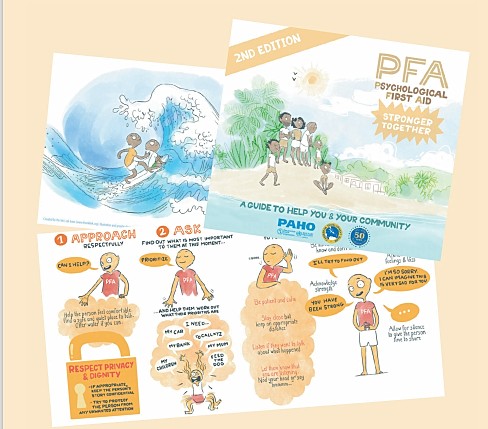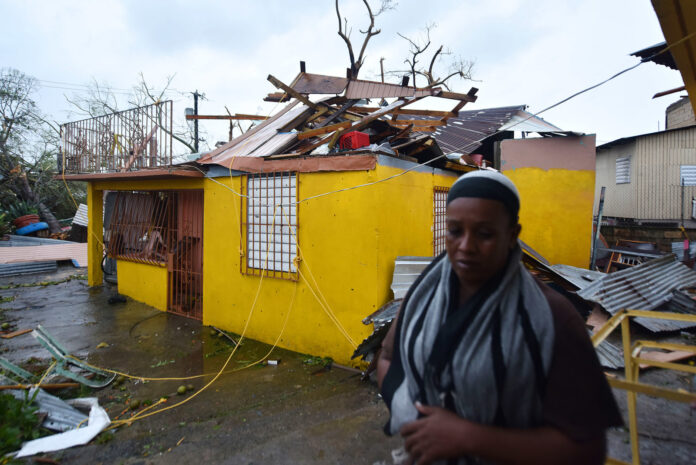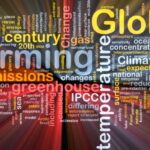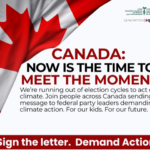In Part 1 on this subject, I summarized the findings of the World Health Organization (WHO) on climate change and its impact on human mental well-being. The range of human reactions to this growing existential challenge covers the gambit from stress and depression to violent behaviour and even thoughts of suicide. Among youth, climate change is evoking a sense of helplessness for many.
The WHO report referenced in Part 1 is not limited to describing mental health threats. It also includes approaches that health agencies and governments can make to address the psychosocial impacts. The acronym MHPSS which stands for Mental Health Psychosocial Support is referenced throughout the recommendations that follow:
- Governments need to integrate MHPSS into all climate change policies and programs. A good example of health strategies and plans that can assist mental well-being are programs that address making cities more pedestrian and bicycle-friendly, that increase mass transit options, and that expand tree canopies to reduce the heat-island effect. By making cities more climate-resilient, you make those living in them better able to cope.
- Providing adaptation and mitigation intervention metrics and monitoring mechanisms to measure general population mental well-being in the face of extreme weather and other climate change hazards. What should be the measures for mental health when looking at the impacts of droughts, heat stress, air quality, and other climate change factors? What’s required is the creation of methodologies and standards to come up with metrics that can be tracked. And as climate change affects populations, these metrics should give governments, health services, security, and other appropriate agencies a data-driven picture of general mental well-being to allow them to choose appropriate response strategies.
- Creating a single cross-sectoral MHPSS infrastructure for coordinating climate action responses that involve all appropriate agencies and departments within government, as well as the private sector to address climate change crises such as crop failures, food insecurity, vector-borne disease outbreaks, prolonged drought, or the consequences of sudden violent weather events.
- Integrating pharmacology into mental-health responses to include the management and distribution of pharmacological agents such as psychotropic medications as part of crises response plans.
- Ensuring that mental health research and the impacts of climate change on the general population’s well-being are budgeted for as part of an integrated MHPSS infrastructure.
A Caribbean Well-Being Case Example
Members of the Caribbean community have made an effort to address the need for psychological help in the face of climate change. It is a response to devastating hurricanes such as Maria which caused extensive damage to Caribbean island nations in 2017.
Hurricanes have been around well before climate change became a reality. There is compelling evidence, however, that hurricanes are getting stronger in the face of climate change. This is producing more devastating storms that pummel places like Puerto Rico, Cuba, The Dominican Republic, Haiti, Guadeloupe, and other Caribbean island nations as Maria did in 2017.
In response, the Caribbean Development Bank in partnership with the Pan American Health Organization developed an MHPSS awareness and preparedness campaign to encourage citizens of these impacted islands to reduce the stigma and seek mental well-being assistance. A guide to providing psychological help can be seen in the sample illustrations below.

The WHO Report Conclusions
It notes growing evidence that climate change is affecting mental health, and that countries need to dramatically accelerate their overall responses.
It describes potentially irreversible effects on mental well-being leading to anxiety and panic attacks, solastalgia (the lived experience of negatively perceived environmental change), eco-anxiety (worries and fears about climate change that affect daily living leading to difficulty sleeping, panic attacks, inability to focus on relationships, school or your job), and ecological grief.
It points to the need for further research and the gathering of real-world data to create holistic and coordinated responses that encompass mental along with physical well-being.
It further notes that financial commitments from all relevant government departments and agencies, the healthcare industry, and others such as the banking sector are needed to address mental health well-being.
The last sentence of the report concludes as follows: “This is the only way to achieve justice for all those who are affected.”









